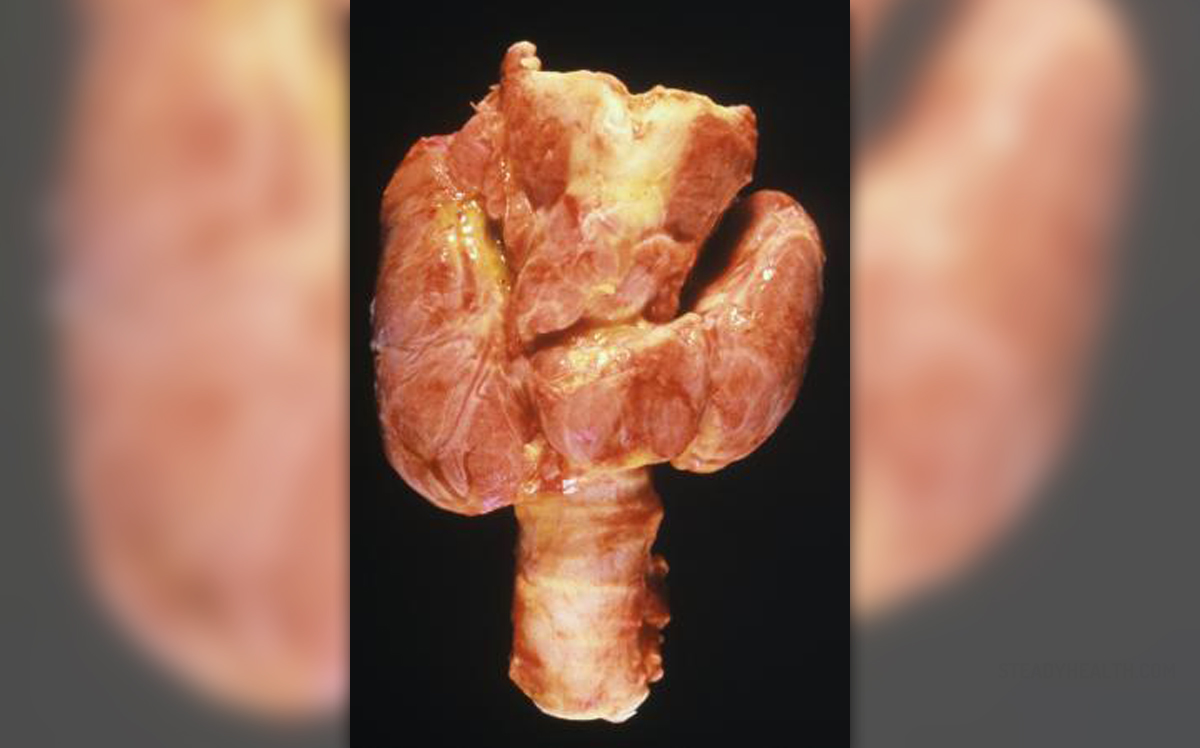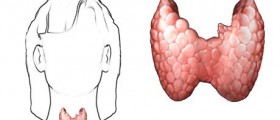
Overactive thyroid gland
One of the most important glands in the body is the thyroid gland. It produces two very important hormones, T4 and T3, which are responsible for the proper functioning of many organs or systems in the body. The production of these hormones is regulated by the thyroid stimulating hormone, which is produced by the pituitary gland. Furthermore, hypothalamus in the brain also controls the functioning of the thyroid gland by producing hormone that stimulates thyroid simulating hormone of the pituitary gland.
Two well-known disorders of the thyroid gland are hypothyroidism and hyperthyroidism. Hypothyroidism or inactive thyroid gland is the condition when the thyroid gland is not capable of producing enough of its hormones. On the other hand, hyperthyroidism or overactive thyroid gland is the condition when the thyroid gland produces high amounts of the two hormones than is necessary.
In the majority of cases, the main cause for the occurrence of hyperthyroidism is Grave’s disease, which leads to the thyroid gland growth by almost twice the normal size.
Symptoms of overactive thyroid gland
One of the most common symptoms of hyperthyroidism is loss of body weight and excessive sweating since all the functions of the body accelerate. Furthermore, the people who suffer from overactive thyroid may experience difficulty in breathing or shortness of breath while performing heavy physical activities. Fatigue, feeling tired and loss of energy as well as nausea, discomfort and uneasiness in the stomach are also some of the warning signs of this condition.
An overactive thyroid gland should be treated as soon as it is diagnosed since it can lead to osteoporosis. It is a condition marked by the weakening of the bones, which results in their increased susceptibility to fractures. Insomnia or sleep deprivation may be also the symptom of hyperthyroidism, which is caused by the increased rate of the bodily functions. Overactive thyroid gland may lead to the appearance of goiter, which is marked by forming of a lump in the neck. People suffering from this condition may also face distressful hair loss or increased rate of heartbeats.
Eye problems, such as protruding eyes, may also occur due to hyperthyroidism. Since the muscles around the eyeballs tend to move less, the eyelids are retracted, which is why people with hyperthyroidism are at higher risk to develop an eye infection or vision problems. In women, overactive thyroid gland may also cause irregular menstrual periods or difficulty to conceive, warm and moist skin and irritability.









-In-Adults_f_280x120.jpg)

-And-Children-16-Warning-Signs-And-Symptoms_f_280x120.jpg)



-In-Infants-And-Older-Children_f_280x120.jpg)

Your thoughts on this
Loading...